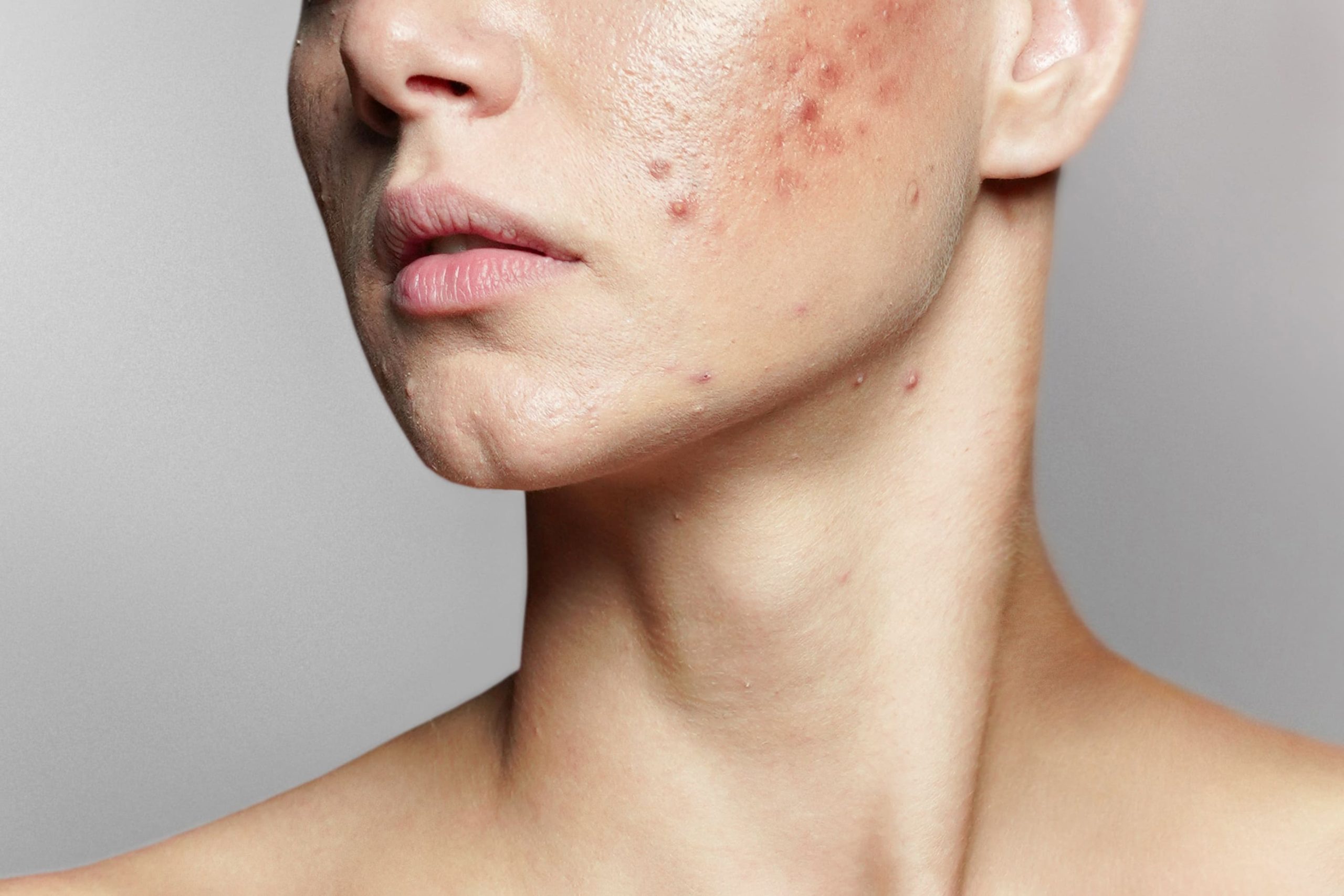
Medically Reviewed by Dr. Lee Hwee Chyen
MBBS MRCP (UK) FAMS (Dermatology)


Vitamin C serum can reduce inflammation by countering oxidative stress, and aid in collagen synthesis, which is crucial for repairing the skin damage caused by acne and potentially reducing scars. In cases of severe acne, Vitamin C’s role in wound healing can be significant. Vitamin C can also decrease the oxidation of sebum, a factor contributing to acne. Despite these benefits, Vitamin C serum should not be used as a standalone treatment, and, instead, be integrated into a complete skincare routine. Consult with your dermatologist before using it for acne-prone skin.
Vitamin C plays an important role in skin health due to its antioxidant properties and its participation in collagen synthesis, wound healing, and the body’s immune response.
Primarily, Vitamin C serves as a potent antioxidant, reducing the impact of harmful free radicals produced within the skin due to environmental factors such as sun exposure and pollution. By neutralising these radicals, Vitamin C prevents oxidative stress, reducing premature skin-ageing and enhancing the overall skin appearance.
Additionally, Vitamin C is crucial for collagen synthesis. Collagen, a structural protein, imparts strength and elasticity to the skin. With age and harmful environmental exposure, collagen synthesis decreases, leading to wrinkles and sagging. By promoting collagen production, Vitamin C aids in preserving skin’s firmness and reducing visible signs of ageing.
Vitamin C also accelerates the wound-healing process. It participates in the formation of a protein called fibrin, which forms a scaffold over the injury site, enabling new tissue growth.
Lastly, as part of the immune system, Vitamin C contributes to fighting infections, including skin infections, by enhancing the proliferation and function of immune cells.
The significance of Vitamin C for skin health is manifold, extending from protection against environmental stressors, promoting collagen synthesis to aiding wound healing and immunity.

For the effective application of topical Vitamin C Serum in the context of acne-prone skin, certain steps should be followed.
Consistent use of Vitamin C serum is required for visible results, as the effects are progressive and build over time.
Vitamin C serum may serve a supportive role within a comprehensive acne management plan. Here are the key potential benefits.
While Vitamin C serum may offer these benefits for acne-prone skin, it is not a primary treatment for acne. It should be supplemented with an appropriate skincare regime, lifestyle modifications, and possibly, prescribed medication by your dermatologist for severe cases.
While Vitamin C serum has multiple potential benefits for skin health, its usage should also come with certain precautions.
In some cases, it can cause dryness, redness, and itching. If these occur, cease use and consult a dermatologist.
Those with sensitive skin or skin conditions like rosacea should approach the use of Vitamin C serum with caution, and ideally under dermatological guidance.
Topical Vitamin C serum can serve as a valuable addition to a skincare regime, particularly in acne management. The potent antioxidant capacity of Vitamin C, along with its involvement in collagen synthesis and wound healing, contributes to lessening the impact of acne and improving overall skin health.
Individuals with specific skin conditions or sensitivities should consult with a dermatologist before its use.
Acne is a skin condition that can be exacerbated by certain cosmetic ingredients. Understanding these ingredients can help prevent acne flare-ups and maintaining healthy skin. Read on to learn more.
Feel free to drop by our our clinic and meet our specialist
101 Irrawaddy Road #16-09
Royal Square at Novena, Singapore 329565
 +65 8701 7662 (WhatsApp Enquiries Only)
+65 8701 7662 (WhatsApp Enquiries Only)
Mon - Fri (09:00am - 05:30pm)
Sat (09:00am - 1:00pm)
Sun & Public Holidays (Closed)